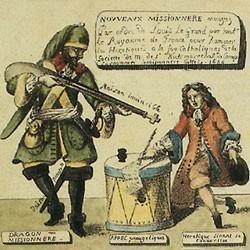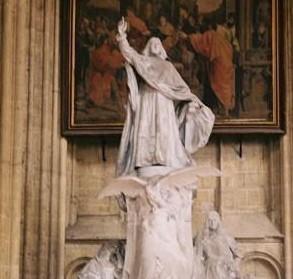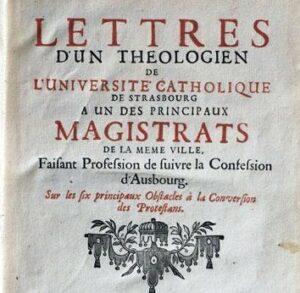An idolatrous submission to the king
After the peace treaty of Alès (1629), the Protestants lost their political party : they were dependent on the king’s good will without any other assurance besides his word that he would respect the Edict of Nantes.
However, unlike in the early years of Louis XIII’s reign (1610), most trusted the king due to Luther’s doctrine, according to which power is directly transmitted from God to the Prince. They acknowledged the divine right of the monarch.
During Louis XIV’s reign, the Reformed theologians proved themselves more loyal to the monarchy than did the Catholics. In the same way, during La Fronde (1649-1653), the Protestants remained faithful to the king.
The divine right of the monarch was overstated and carried to an extreme by some people, distorting Calvin’s doctrine and verging on idolatry. Indeed in 1656, the representatives of the Reformed Church addressed the young Louis XIV in these terms : “we apply our religious principles to politics. We believe that no subject can ever deserve anything from his monarch.”
Harmful consequences
This state of mind led the Reformed Protestants to conform to the decisions made by the monarch, to refrain from rebelling even when their temples were threatened of destruction. Some did not change their minds until after the revocation of the Edict of Nantes in 1685.







